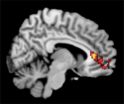(Press-News.org) Barcelona, Spain: A phase I trial of the first drug designed to inhibit the cancer-causing activity of a mutated enzyme known as isocitrate dehydrogenase (IDH) 1, which is involved in cell metabolism, has shown clinical activity in patients with advanced acute myeloid leukaemia (AML) with the IDH1 mutation.
Professor Daniel Pollyea, M.D. will tell the 26th EORTC-NCI-AACR [1] Symposium on Molecular Targets and Cancer Therapeutics in Barcelona, Spain, today (Wednesday) that early results from the phase 1 clinical trial of the drug AG-120, an oral, selective and potent inhibitor of the mutated form of the IDH1 enzyme, have shown that the drug was well tolerated with encouraging clinical activity in patients with advanced IDH1 mutation positive AML.
"This is the first study in humans of an inhibitor of mutant IDH1 and the first demonstration of clinical activity of AG-120 in AML patients whose cancers have the IDH1 mutation. Although the data are early, we are encouraged to see evidence of clinical activity, as the primary objectives of Phase I studies are to determine safety and tolerability," Prof Pollyea, who is clinical director of leukemia services and assistant professor of medicine at the University of Colorado, USA, will say.
Mutations in IDH1 lead to a cascade of metabolic events in cells that contribute to malignancy. Mutant IDH1 produces an excess amount of 2-hydroxyglutarate (2-HG), which is a substance that is normally present in cells in low levels. When 2-HG is present in excessive amounts, it prevents them from maturing into normal functioning cells, leading to cancer. In the phase 1 study, AG-120 was able to reduce 2-HG levels in diseased cells to normal levels, allowing them to mature into normal cells. IDH1 mutations have been identified in a range of solid tumours, such as chondrosarcoma, cholangiocarcinoma and gliomas, and haematologic cancers (cancers of the blood), such as AML and myelodysplastic syndromes (MDS).
The first clinical trial of AG-120 in haematologic cancers started in March 2014 and, as of the data cut-off date of October 17, 2014, 17 patients with relapsed and/or refractory AML had been enrolled into one of four dose groups, with each group receiving the drug in tablet form at different and increasing dose levels: 100mg twice a day, 300mg once a day, 500mg once a day and 800 mg once a day over continuous 28-day cycles. There are between four to five patients in each group. The median number of prior treatments before entering the study was two.
In the first four groups of patients treated in the trial with AG-120, results from 14 evaluable patients showed seven patients whose cancers responded to the drug, including four complete remissions (no sign of cancer remaining). Three patients had not reached the time in their treatment for bone marrow assessments in the first 28-day treatment cycle, and so were not evaluable. AG-120 has been well tolerated by patients to date, and the researchers are continuing to increase the dose; the maximum tolerated dose has not been reached yet.
"These data suggest that using AG-120 to inhibit the IDH1 mutation has the potential to stop the production of 2HG, and encourage cancerous cells to become mature, functioning blood cells. AML is a devastating disease that has historically been very difficult to treat, and these findings suggest that AG-120 has the potential to transform therapy for patients with IDH1-mutant positive AML," Prof Pollyea will say.
The phase 1 trial is enrolling patients with difficult to treat AML whose cancers have failed to respond to previous treatment and/or have relapsed, or who are over the age of 60 with untreated AML or myelodysplastic syndromes (or MDS). All harbour the IDH1 mutation. The prognosis for these cancers is poor: overall, only 25% of patients diagnosed with AML will live for five years, but among patients over the age of 60, who tend to respond less well to treatments, about 12% are alive after five years.
The researchers are continuing to conduct the phase I study with the aim of fully understanding the safety of the drug, determining the maximum tolerated dose and assessing its efficacy in treating AML and MDS.
Professor Jean-Charles Soria, chair of the scientific committee for the EORTC-NCI-AACR Symposium and chair of the Drug Development Department at Gustave Roussy Cancer campus, France, commented: "AG120 is an oral inhibitor of mutant IDH1. In this first-in-man trial, AG120 appears well tolerated, and has demonstrated, in a limited set of molecularly selected AML patients, indisputable clinical activity."
INFORMATION:
[1] EORTC [European Organisation for Research and Treatment of Cancer, NCI [National Cancer Institute], AACR [American Association for Cancer Research].
Barcelona, Spain: Researchers have found that patients with an advanced form of kidney cancer, for which there is no standard treatment and a very poor prognosis, respond well to a combination of two existing anti-cancer drugs.
Dr Ramaprasad Srinivasan, head of the Molecular Cancer Therapeutics Section, Urologic Oncology Branch, of the National Cancer Institute in Maryland, USA, will tell the 26th EORTC-NCI-AACR [1] Symposium on Molecular Targets and Cancer Therapeutics in Barcelona, Spain, today (Wednesday) that the combination of bevacizumab and erlotinib produced ...
Barcelona, Spain: Results from a trial of the anti-cancer drug galeterone show that it is successful in lowering prostate-specific antigen (PSA) levels in men with a form of prostate cancer that is resistant to treatment with hormone therapy (castration-resistant prostate cancer or CRPC).
Associate professor Mary-Ellen Taplin, of the Dana-Farber Cancer Institute, Boston, USA, will tell the 26th EORTC-NCI-AACR [1] Symposium on Molecular Targets and Cancer Therapeutics in Barcelona, Spain, today (Wednesday) that galeterone was well tolerated by patients in the ARMOR2 trial, ...
VIDEO:
New research from the University of Copenhagen and Copenhagen University Hospital shows that low blood vitamin D levels increase mortality. The study included 96,000 Danes and was recently published in...
Click here for more information.
Vitamin D deficiency is generally associated with an increased risk of poor bone health. However, recent studies have shown that low levels of this important vitamin also involve an increased risk of other diseases and higher mortality ...
A brief coping strategies therapy which provides stress relief and emotional support for people caring for relatives with dementia can reduce depression and anxiety and improve wellbeing at no extra cost to standard care, new research published in The Lancet Psychiatry suggests.
The study led by Gill Livingston, Professor of Psychiatry of Older People at University College London in the UK, found that family caregivers receiving the START (STrAtegies for RelaTives) programme were seven times less likely to develop clinically significant depression than those given usual ...
A new diagnostic technique -- resulting from monitoring thousands of courtship calls from songbirds -- can be used to safely map the human brain during complex neurosurgery, according to research from Neuroscientists at NYU Langone Medical Center and elsewhere.
The mapping process, first tested in zebra finches, involves gently placing a miniature electrical cooling device at different locations on a small region of the songbirds' brains. This slows down processing of complex neural behaviors, such as a birdsong or human speech.
In a report prepared for the Society ...
DURHAM, N.C. -- Holiday shopping can be mentally exhausting for anyone. But a new Duke University study finds that older adults seem to need extra brainpower to make shopping decisions -- especially ones that rely on memory.
The study appearing Nov. 19 in the Journal of Neuroscience suggests that older shoppers use an additional brain area to remember competing consumer products and choose the better one.
"The study gives a bright picture, actually," said lead author Nichole Lighthall, a postdoctoral researcher in Roberto Cabeza's lab at Duke's Center for Cognitive ...
LA JOLLA, CA--November 18, 2014--"Protein misfolding" diseases such as cystic fibrosis and Alzheimer's may be seriously exacerbated by the body's own response against that misfolding, according to a new study led by scientists at The Scripps Research Institute (TSRI).
The researchers examined patient cells and animal models of several diseases that feature chronic protein misfolding and found that in each case, a cellular defense system against protein misfolding, called the "heat shock response," was overactive. Reducing its activity lessened the signs of disease and ...
Sleep is a critical period for memory consolidation, and most people don't get enough. Research has shown that even brief periods of sleep deprivation can lead to deficits in memory formation.
In a new study, published in the Journal of Neuroscience, a team led by scientists from the University of Pennsylvania found that a particular set of cells in a small region of the brain are responsible for memory problems after sleep loss. By selectively increasing levels of a signaling molecule in these cells, the researchers prevented mice from having memory deficits.
Robbert ...
LOS ANGELES (STRICTLY EMBARGOED UNTIL 5 P.M. EST on NOV. 11, 2014) - Lou Gehrig's disease, also known as amyotrophic lateral sclerosis, or ALS, might damage muscle-controlling nerve cells in the brain earlier in the disease process than previously known, according to research from the Cedars-Sinai Board of Governors Regenerative Medicine Institute. The findings, published in the Nov. 12 Journal of Neuroscience, could shift researchers' attention from the spinal cord to the brain's motor cortex as the disease's initial point of dysfunction.
"In this study, we show the ...
Home exercise can ease feelings of hopelessness in people with coronary heart disease, according to a small study presented at the American Heart Association's Scientific Sessions 2014.
Feeling hopeless can be dangerous because it can discourage people from taking healthful steps such as exercising or quitting smoking, said Susan L. Dunn, Ph.D., R.N., lead author of the study and a professor of nursing at Hope College in Holland, Michigan.
People with hopelessness may also suffer from depression, which is marked by a loss of interest in activities they normally enjoy.
"For ...



